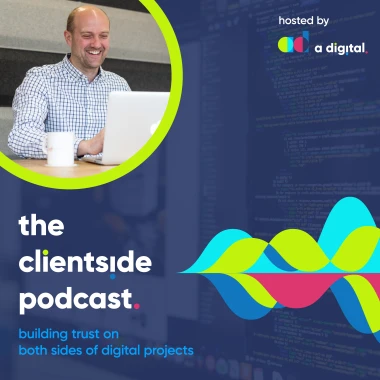
Podcasting with James Mulvany
The Clientside Podcast
35 min James Mulvany
In this episode of the Clientside Podcast, Andrew Armitage talks to podcasting expert and founder of radio.co James Mulvany about the many benefits that podcasting can bring to your business and how you can get started. During lockdown digital platforms have seen an increase in use, despite podcasting being something that has been popular for some time, there is still plenty of room in the market!
We talk about James’ career and how his own experiences with podcasting led him to start matchmaker.fm – which he describes as Tinder for podcasters. We discuss the motives behind starting a podcast, the rise of video in the podcasting world and things that you should consider before starting a podcast yourself.
Listen on your smart device or read the transcript below
I think the first thing to do is really ask the question, who is your audience going to be and what sort of podcast do you want? Decide what you want and then it's a case of right, how do we measure success of this?
James Mulvany Tweet